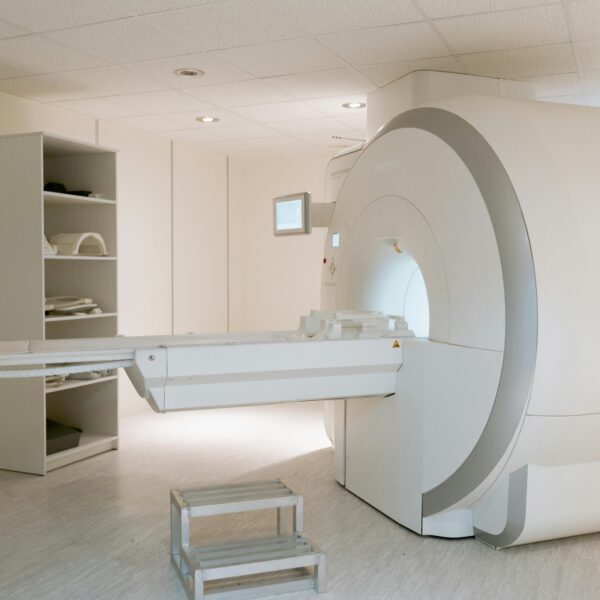It’s the day of your big healthcare interview! You’ve got a killer outfit and all the credentials that make you a top candidate. You’ve got your answers for the most common interview questions down pat. But you aren’t the only one being interviewed – have you thought about what you’re going to ask your interviewer? Interviews are a two-way street and establishing a rapport with your potential future boss is a great way to stand out. An interview doesn’t have to go down like an interrogation – get talking and make it more of a conversation! You don’t have to wait until the end of the job interview to speak up – asking insightful questions throughout shows that you are engaged and interested.
Asking questions during your interview not only demonstrates your eagerness and interest. It can also give you a lot of insight into things that may have been omitted during the conversation. The way that interviewers answer your questions will tell you a great deal about the facility and can help determine if the job will be a good fit for you. For example, if they seem vague or uninformed about questions regarding workplace culture, this could indicate a reserved management style. Try to get as much information about your potential new job as possible before accepting an offer.
The Basics of Asking Healthcare Interview Questions
Be prepared and come with at least two or three questions. The worst thing you can do is answer ‘no’ when your interviewer asks if you have any questions. Not asking questions gives off the impression that you’re not taking the process seriously and just want the interview to wrap up. At the same time, don’t just ask anything. Pay attention, because asking a question that they have already answered will not go over well.
Do some research on the facility, as well as the specific position you are interviewing for. Sounds like a no-brainer, but this will help you to avoid asking questions you really should already know the answer to. For example, ‘How long has this facility been around for?’ might sound like a good question but could be answered with a quick Google search. If possible, also do some research on the person interviewing you – go in as informed as possible. Lastly, try to avoid questions surrounding benefits, salary or time-off requests until later in the process – you want your interest in the position to be the main focus of the interview.
Curate a handful of questions like the ones listed below for your next healthcare interview to stand out as an engaged and interested candidate – and potentially their next employee!
“What is the workplace culture like?”
Beyond fitting the job description, you need to do some probing into finding out if you’re going to actually enjoy working there (for yourself). You are going to be spending a lot of time at this job, so it’s worthwhile to inquire about workplace culture. Is it more relaxed or formal? What does a typical day look like? Are there any regular employee outings or team building activities? How are decisions made, and how are conflicts resolved? These are important things to know – you don’t want to start at a new position and encounter any major surprises. You will be the new employee, so it’s likely that you will have to do the adapting.
“What is your management style?”
You can follow up questions about workplace culture with ones regarding the management style of the people in charge. Even more so than getting along with your future coworkers, it is important to get along with your potential future boss. There is a range of different management styles, from the more appealing democratic or visionary, to the less desirable autocratic or laissez-faire. Depending on the position you are interviewing for, and how much interaction you will have with management, this is a good area to explore. It should give you an idea of whether or not your working style will mesh well with your manager and the rest of the staff.
“Can you tell me about your healthcare career path?”
This is a great question that allows you to get to know your interviewer better without getting too personal. Deeply personal questions should be avoided until much further along in your relationship. By showing interest in the path that got them to where they are now, you are telling your interviewer that you are eager and ambitious. It is also a chance to establish rapport! It may cause your interviewer to reminisce to a time that they were in your position…having a bit of empathy on your side can’t hurt.
“What kind of training is provided for this healthcare job?”
If this hasn’t already been clarified in the interview, getting a sense of how much – or how little – training will be provided is a great question to ask. It will give you a better sense of how long you will be learning the ropes and when you will actually begin to get your hands dirty. If their answer is vague, there may not be any formal training programs in place, which could be off-putting for some.
“What are some of the challenges the facility/industry is currently facing?”
You obviously have to be well educated and qualified for the position. However, keep in mind that your interviewer may also want to hear your opinion on current healthcare topics. Do some research on current issues and come prepared. This will allow you to have an intelligent conversation that you have some control over. Having some questions or comments about the specific healthcare industry that you are interviewing in demonstrates that you have interest in the field in a broader sense. If you are interviewing for a nursing role, you could discuss current nurse staffing issues. Radiology candidates could discuss the new advancements in technology the field is seeing. Chatting with your interviewer about shared interests will end the interview on a more relaxed note.
“What qualities do your top healthcare professionals possess?”
Understanding the facility’s idea of a successful healthcare employee is another opportunity that will help determine if you will be a good fit with the rest of the team. For example, your interviewer may consider someone who is outgoing and aggressive to be successful. This may not be good news if your personality tends to be passive and introverted. Every healthcare facility is different, and not all personality types will shine in the eyes of every manager. You know yourself, and your work ethic, better than anyone. Assuming the hiring manager is being open and direct, you will get a sense of whether you will succeed based on the answer to this question.
A follow-up question could be ‘What do you think my biggest challenges will be if we move forward?’ After you have gone over your credentials, working style and a bit about yourself, your interviewer should be able to answer this with insight. By identifying potential challenges before even beginning your new position, you can start as prepared as possible.
If you are looking for a new healthcare job, take a look at our job board to see what roles we have open across the country. If you are looking for something different than what you see there, send us an updated resume and connect with a dedicated recruiter. Radius recruiters are here to help you from application to your start date, so get started today!











